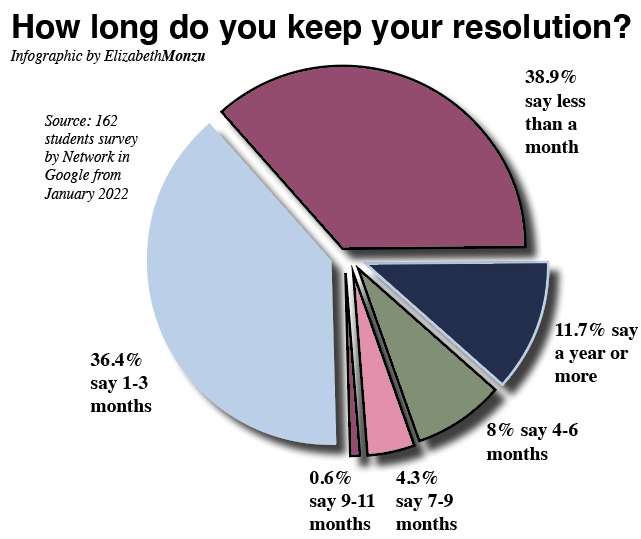
The New Year represents a new beginning and fresh start. This fresh start can motivate you to form new habits that are in line with your goals and values, as well as motivate you to drop habits that are not serving you. The New Year is really exciting because you have a whole year ahead of you that will hopefully be full of great opportunities and amazing experiences. I think that at some point in our lives, we have made New Year’s resolutions before. Every year, people all around the world make New Year’s resolutions to reach their goals, improve their health, and better their lives. However, it is also a well-known fact that while some people achieve their New Year’s resolution, a majority of people fail to achieve their New Year’s resolutions. According to a 2016 study, of the 41% of Americans who make New Year’s resolutions, by the end of the year, only 9% feel they are successful in keeping them. This obviously raises the question: why are so many people failing their New Year’s resolutions? Making New Year’s resolutions is basically setting goals for yourself, and everyone knows that it is important to set goals for yourself. So why do so many people fail their New Year’s resolutions?
One common reason why many people fail their New Year’s Resolutions is because they do not track their progress. In one study, 33% of the participants who failed their New Year’s Resolutions did not keep track of their progress. When you track your progress, you are able to sustain an “I can do this” mentality and motivate yourself to improve on a regular basis. When you don’t keep track of your progress, you are less likely to notice the small improvements you are making. So many people fail their resolutions because they are not keeping track of the small improvements they are making on a daily basis.
Another common reason why many people fail their New Year’s Resolutions is because they make way too many resolutions. In one study, about 1 in 10 people who failed their resolutions said they made too many resolutions. If you make too many resolutions for yourself, you are not only going to feel very overwhelmed, but you are most likely not going to be able to implement all of these changes in your life all at once. You are going to be able to accomplish your goals and form healthier habits more efficiently if you focus on just accomplishing a few goals at a time.
Lastly, one huge reason why so many people fail their New Year’s resolutions is because they set unrealistic goals. In one 2014 study, 35% of participants who failed their New Year’s Resolutions said they had unrealistic goals. While it is good to dream big, when it comes to making resolutions, you only want to make resolutions that you can realistically achieve at this point in your life. If you set all of these unrealistic resolutions and have absolutely no game plan as to how you are going to achieve these resolutions, you are going to feel discouraged very quickly. Since you will feel discouraged very quickly, you are most likely going to completely give up on achieving your goal.
Overall, setting New Year’s resolutions can be a great way to motivate yourself to form new habits that are in line with your goals and values. Making New Year’s resolutions can give you a sense of direction of where you want to head in life, help you identify what’s important to you, and help you stay motivated to make the most out of your life. However, in order for new Year’s resolutions to be effective, we need to make sure that we are making New Year’s resolutions that are realistic and have a game plan as to how we plan to stick to them. It is very important for us to not only keep track of our progress, but to also not set too many New Years resolutions at once. By following these steps, we can make New Years resolutions that will help us form healthy habits and achieve our goals for the long-term.
Sources:
https://discoverhappyhabits.com/new-years-resolution-statistics/
https://www.lifehack.org/articles/lifestyle/10-reasons-why-new-years-resolutions-fail.html
https://www.amfam.com/resources/articles/support-for-your-dream/why-goal-setting-is-important





























